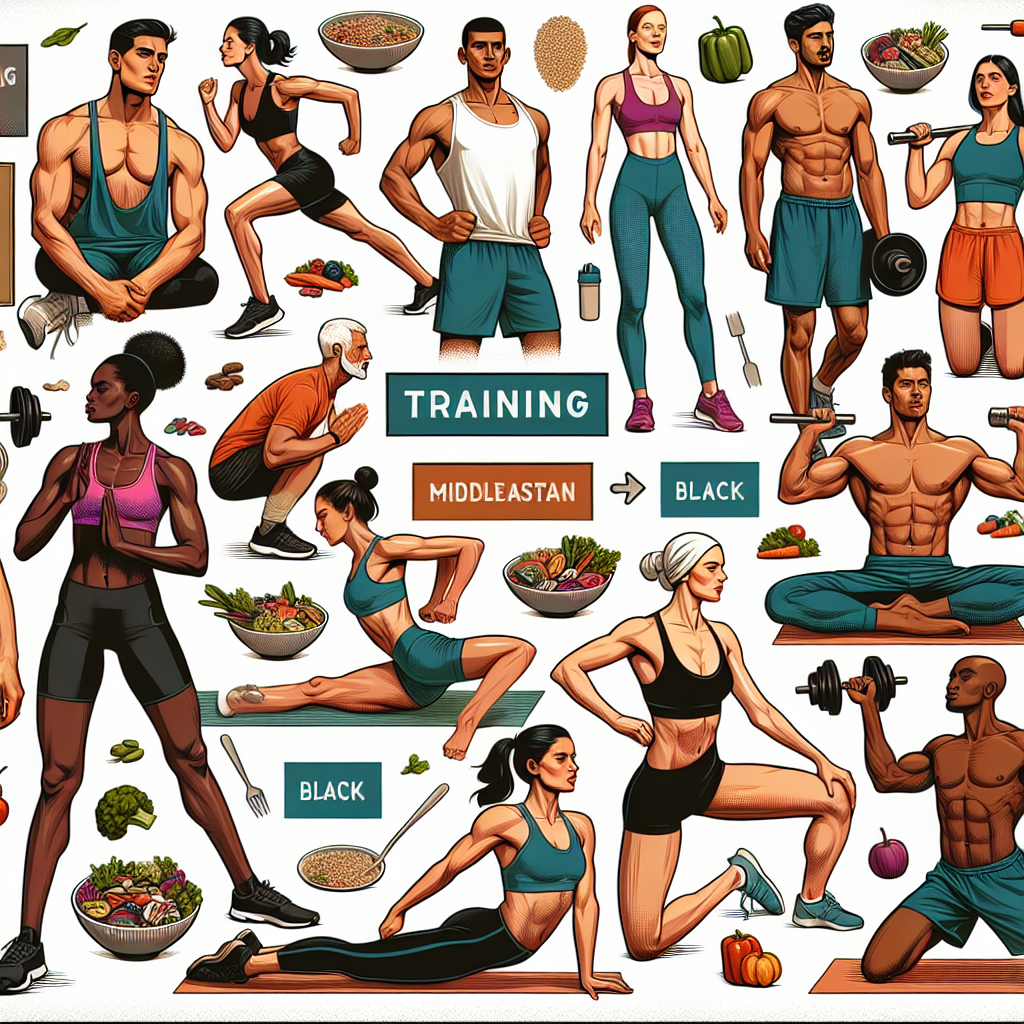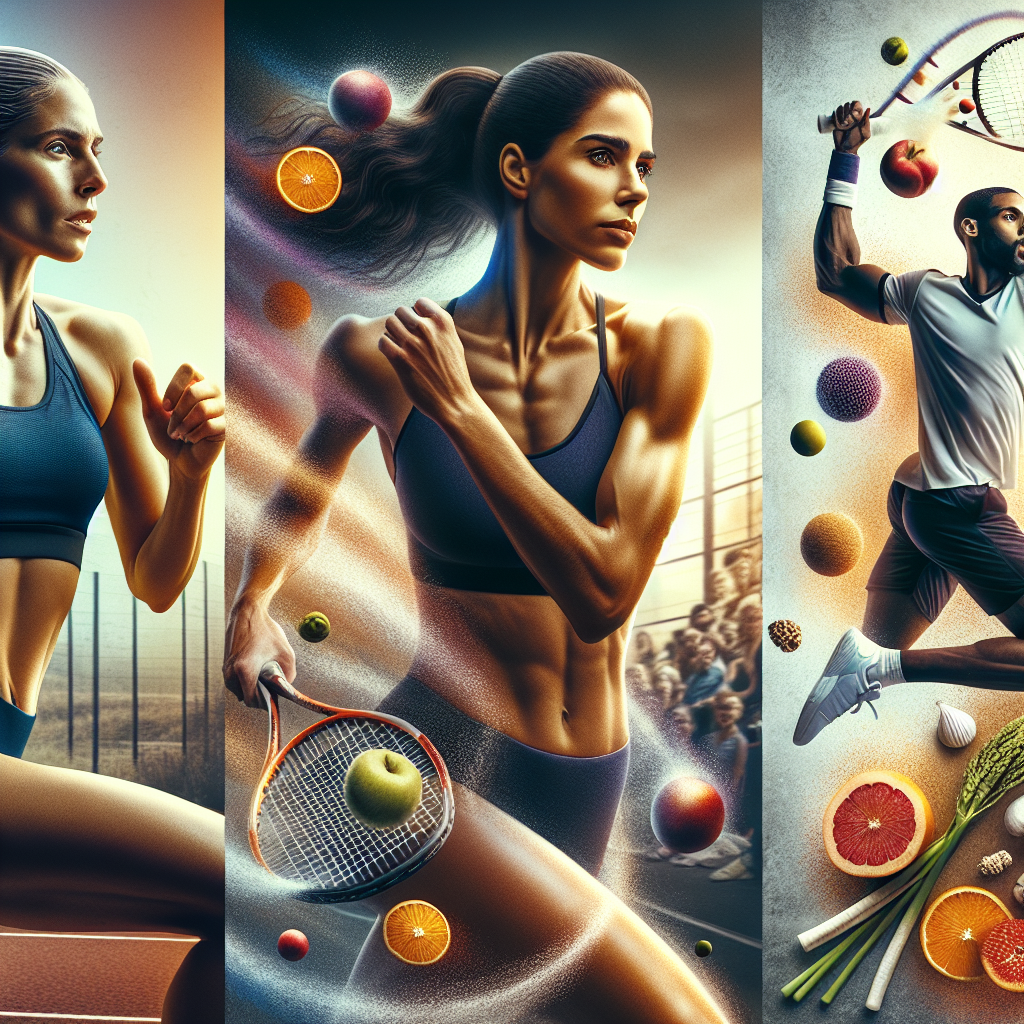Calling all athletes! We have an exciting topic that we believe will pique your interest: vegan athletes. Yes, you heard it right – athletes who choose to follow a plant-based diet. In this article, we will explore the world of veganism in the athletic community, uncovering the reasons behind this lifestyle choice and shedding light on the incredible achievements of these plant-powered individuals. So grab a seat and get ready to be inspired by the extraordinary stories of vegan athletes who are breaking stereotypes and redefining what it means to be fit, strong, and compassionate.

Benefits of a Vegan Diet for Athletes
Improved Cardiovascular Health
Switching to a vegan diet can have a positive impact on cardiovascular health for athletes. Plant-based diets are naturally low in saturated fat and cholesterol, which can contribute to heart disease. By eliminating animal products, athletes can lower their risk of developing cardiovascular issues such as high blood pressure and clogged arteries. The abundance of fiber and antioxidants present in a vegan diet further supports a healthy cardiovascular system, reducing the risk of heart disease and improving overall heart health.
Enhanced Recovery and Reduced Inflammation
A vegan diet can aid in the recovery process for athletes and help reduce inflammation in the body. Animal products can contribute to increased levels of inflammation due to their high saturated fat content. By focusing on plant-based foods, athletes can provide their bodies with a wide array of phytonutrients and antioxidants that have been shown to have anti-inflammatory properties. This can lead to faster recovery times after intense workouts or competitions, allowing athletes to train more consistently and achieve optimal performance.
Increased Energy and Endurance
Fueling the body with plant-based foods can provide athletes with a sustainable source of energy, leading to improved endurance. Complex carbohydrates found in whole grains, legumes, and vegetables provide a slow release of energy, ensuring a steady supply of fuel during workouts or competitions. Additionally, plant-based foods are rich in vitamins, minerals, and phytonutrients that support overall energy production and metabolism. By adopting a vegan diet, athletes may experience increased energy levels, allowing them to push their limits and reach new athletic heights.
Better Digestion and Nutrient Absorption
A vegan diet can promote better digestion and efficient nutrient absorption in athletes. Plant-based foods are typically higher in fiber, which aids in healthy digestion and regular bowel movements. This can prevent digestive issues such as constipation, bloating, and discomfort, allowing athletes to feel lighter and more comfortable during physical activity. Furthermore, plant-based diets are rich in essential nutrients like vitamins and minerals that are readily absorbed by the body, ensuring that athletes are receiving the necessary fuel to support their athletic performance.
Key Nutrients for Vegan Athletes
Protein
Protein is a vital nutrient for athletes as it plays a crucial role in muscle repair and growth. Contrary to popular belief, it is entirely possible for vegan athletes to meet their protein needs through plant-based sources. Foods such as legumes, tofu, tempeh, and seitan are excellent plant-based protein options. Additionally, vegan protein powders made from sources like pea, hemp, or rice offer convenient options for athletes to meet their protein requirements.
Calcium
Calcium is important for maintaining strong bones and preventing the risk of stress fractures in athletes. While dairy products are a common source of calcium, vegans can obtain this essential nutrient from plant-based sources such as leafy green vegetables (spinach, kale), fortified plant-based milks, and plant-based yogurts. Incorporating these foods into a well-balanced vegan diet can ensure that athletes are meeting their calcium needs.
Iron
Iron is critical for oxygen transport in the body, a crucial function for athletes. While iron from plant-based sources is not as readily absorbed as iron from animal products, it is still possible for vegan athletes to obtain adequate iron levels through careful dietary choices. Plant-based iron sources include legumes, tofu, fortified cereals, nuts, and seeds. Pairing iron-rich foods with vitamin C-rich foods (such as citrus fruits or bell peppers) can enhance iron absorption.
Omega-3 Fatty Acids
Omega-3 fatty acids are essential for reducing inflammation and supporting overall brain and heart health. While fish is often associated with omega-3 fatty acids, vegan athletes can obtain these beneficial fats from plant-based sources such as chia seeds, flaxseeds, hemp seeds, and walnuts. Including these foods in the diet can ensure that vegan athletes are meeting their omega-3 fatty acid needs.
Vitamin B12
Vitamin B12 is crucial for proper nerve function and red blood cell production. Since vitamin B12 is primarily found in animal products, it is important for vegan athletes to supplement their diet with a reliable source of vitamin B12. This can be achieved through fortified plant-based foods (such as breakfast cereals or nutritional yeast) or by taking a vitamin B12 supplement.
Zinc
Zinc is an essential mineral that plays a crucial role in immune function and overall health. Vegan sources of zinc include legumes, nuts, seeds, whole grains, and fortified plant-based foods. Ensuring that these foods are included in the diet can help vegan athletes meet their zinc requirements.
Plant-Based Sources of Essential Nutrients
Legumes and Pulses
Legumes and pulses, such as beans, lentils, and chickpeas, are excellent sources of protein, fiber, and various vitamins and minerals. These versatile plant-based foods can be incorporated into soups, stews, salads, or even transformed into burgers or spreads like hummus.
Nuts and Seeds
Nuts and seeds are packed with healthy fats, protein, and essential minerals. They make for convenient and nutrient-dense snacks for athletes on-the-go. Additionally, they can be sprinkled on salads, mixed into smoothies, or used as toppings for plant-based yogurt or oatmeal.
Whole Grains
Whole grains, including quinoa, brown rice, whole wheat bread, and oatmeal, provide athletes with a good source of carbohydrates, fiber, and important minerals. These foods can be the foundation of a well-rounded meal, providing sustained energy and supporting proper digestion.
Leafy Green Vegetables
Leafy green vegetables, such as spinach, kale, and Swiss chard, are nutritional powerhouses that offer a wide range of vitamins, minerals, and antioxidants. Incorporating these vegetables into meals or smoothies can provide vegan athletes with essential nutrients for optimal performance.
Seaweed and Algae
Seaweed and algae are rich in minerals, including calcium and iodine. These plant-based sources can be used in sushi or enjoyed as part of a salad or stir-fry. They offer a unique way for vegans to obtain essential nutrients that are typically associated with seafood.
Fortified Plant-Based Milks and Yogurts
Fortified plant-based milks, such as almond milk or soy milk, and plant-based yogurts can provide vegan athletes with essential nutrients, including calcium and vitamin D. These dairy-free alternatives can be used in smoothies, as a base for cereal, or enjoyed on their own.
Plant-Based Protein Powders
Plant-based protein powders offer a convenient way for vegan athletes to supplement their protein intake. These powders are often made from sources such as pea, hemp, or rice, providing a complete amino acid profile. They can be mixed into smoothies, used in baking, or consumed post-workout for optimal muscle recovery.
Meal Planning for Vegan Athletes
Pre-Workout Meal Ideas
A pre-workout meal should be focused on providing sustained energy and promoting muscle recovery. Some vegan-friendly options include oatmeal topped with nuts and fruits, a whole grain wrap filled with roasted vegetables and hummus, or a smoothie made with plant-based protein powder, leafy greens, and berries.
Post-Workout Meal Ideas
After a workout, it is essential to replenish the body with nutrients to aid in muscle recovery and growth. Vegan athletes can opt for meals such as a quinoa salad with roasted vegetables and tofu, a chickpea curry with brown rice, or a homemade veggie burger served with sweet potato wedges.
Snack Options
Vegans athletes can enjoy a variety of snacks to keep their energy levels up throughout the day. Some nutritious snack options include mixed nuts, trail mix, fruit with nut butter, veggie sticks with hummus, or homemade energy bars made with dates, nuts, and seeds.
Hydration Tips
Proper hydration is crucial for athletes, regardless of their dietary choices. Vegan athletes should aim to drink adequate water throughout the day and especially before, during, and after workouts or competitions. In addition to water, coconut water or homemade electrolyte-rich drinks made with natural ingredients like lemon, cucumber, and sea salt can be beneficial for replenishing electrolytes lost during intense physical activity.

Successful Vegan Athletes and Their Achievements
Carl Lewis – Olympic Gold Medalist
Carl Lewis, a legendary Olympian, is proof that a vegan diet can fuel athletic greatness. Throughout his career, Lewis won numerous gold medals in track and field events, cementing his status as one of the greatest athletes of all time. He adopted a vegan diet in 1990, finding that it improved his performance, helped him recover faster, and increased his overall energy levels.
Fiona Oakes – Marathon Runner and World Record Holder
Fiona Oakes, a vegan marathon runner, has achieved remarkable success in the running world. Not only is she a world record holder for running marathons on all seven continents, but she also holds multiple Guinness World Records for her remarkable feats. Oakes credits her vegan diet for giving her the energy and stamina to perform at such a high level.
Nimai Delgado – Professional Bodybuilder
Nimai Delgado is a professional bodybuilder who has been thriving on a vegan diet. Delgado has competed in multiple bodybuilding competitions and has built an impressive physique without the use of animal products. His success in the bodybuilding world showcases that a vegan diet can provide all the necessary nutrients for muscle growth and strength.
David Carter – NFL Player
David Carter, a former NFL defensive lineman, made the switch to a vegan lifestyle and experienced numerous benefits. He found that his energy levels improved, his recovery time decreased, and he was able to maintain a healthy weight without sacrificing strength. Carter is proof that a vegan diet can support the intense physical demands of professional athletes.
Common Misconceptions about Vegan Diets for Athletes
Insufficient Protein Intake
A common misconception about vegan diets is that they do not provide enough protein for athletic performance. However, as discussed earlier, vegan athletes can easily meet their protein needs through plant-based sources such as legumes, tofu, tempeh, and plant-based protein powders. With proper meal planning and knowledge about protein-rich vegan foods, athletes can ensure that their protein requirements are adequately met.
Lack of Calcium and Vitamin D
Another misconception is that vegans may not get enough calcium and vitamin D, which are essential for bone health. However, by incorporating plant-based sources of calcium such as leafy green vegetables, fortified plant-based milks, and plant-based yogurts into their diet, vegan athletes can easily meet their calcium needs. Additionally, exposure to sunlight, fortified plant-based foods, or vitamin D supplements can support adequate vitamin D levels.
Iron Deficiency
Iron deficiency is often associated with a vegan diet due to the perception that plant-based iron sources are not as readily absorbed as iron from animal products. However, vegan athletes can ensure they are getting enough iron by consuming a variety of plant-based iron sources and pairing them with vitamin C-rich foods to enhance absorption. This way, they can fulfill their iron requirements and maintain optimal athletic performance.
Low Energy Levels and Athletic Performance
Some individuals believe that a vegan diet may lead to lower energy levels and hinder athletic performance. However, when properly planned and balanced, a vegan diet can provide all the necessary nutrients and energy for athletes. By including a variety of plant-based whole foods and paying attention to macronutrient intake, vegan athletes can sustain their energy levels and excel in their chosen sports.

Overcoming Challenges as a Vegan Athlete
Finding Vegan-Friendly Restaurants and Travel Food
One challenge for vegan athletes is finding suitable options when dining out or traveling. However, with the increasing popularity of plant-based diets, many restaurants now offer vegan options or can accommodate specific dietary needs. Researching vegan-friendly restaurants beforehand and carrying nutrient-dense snacks can help vegan athletes navigate these situations successfully.
Meal Prepping and Cooking Tips
Meal prepping and cooking can be a valuable skill for vegan athletes to ensure they have nutritious meals readily available. Setting aside time each week to plan and prepare meals in advance can save time and maintain consistency. Experimenting with different recipes, utilizing batch cooking techniques, and incorporating versatile ingredients can make the process enjoyable and rewarding.
Supplementation
While a well-planned vegan diet can provide all the necessary nutrients, some athletes may benefit from certain supplements to optimize their performance. Vegan athletes should consider consulting with a registered dietitian or healthcare professional to identify any nutrient gaps and determine appropriate supplementation, if needed. Common supplements for vegan athletes may include vitamin B12, vitamin D, omega-3 fatty acids, or iron.
Educating and Dispelling Myths
As a vegan athlete, it is essential to educate others and dispel misconceptions about the vegan diet. Sharing personal experiences, participating in interviews or podcasts, and engaging with others through social media platforms can help raise awareness about the benefits of a vegan diet for athletes. By providing accurate information and addressing concerns, vegan athletes can inspire and support others who may be interested in adopting a plant-based lifestyle.
Impact of Vegan Diets on the Environment and Ethical Considerations
Reducing Carbon Footprint
Choosing a vegan diet not only benefits athletes but also has a positive impact on the environment. Animal agriculture is a significant contributor to greenhouse gas emissions and deforestation. By consuming plant-based foods, athletes can help reduce their carbon footprint and contribute to a more sustainable planet.
Avoiding Animal Cruelty and Exploitation
Opting for a vegan diet aligns with ethical considerations regarding animal welfare. Vegan athletes choose to abstain from consuming animal products to avoid supporting industries that may promote animal cruelty and exploitation. By adopting a compassionate lifestyle, athletes can promote kindness and mindfulness towards all living beings.

Advice from Experts and Nutritionists
Consultation with a Registered Dietitian
Consulting with a registered dietitian who specializes in vegan nutrition can provide personalized guidance for vegan athletes. These professionals can help athletes develop meal plans, analyze nutrient intake, address specific dietary concerns, and ensure a well-balanced diet is achieved. Their expertise can contribute to optimal performance and overall health for vegan athletes.
Balancing Macronutrient Intake
Achieving a proper balance of macronutrients is crucial for vegan athletes to support their athletic endeavors. By understanding the macronutrient breakdown of plant-based foods and tailoring their intake based on individual needs, athletes can ensure they are receiving adequate carbohydrates, proteins, and healthy fats. Monitoring portion sizes and adjusting intake to match exercise intensity and goals can optimize athletic performance.
Tailoring the Diet to Individual Needs
No two athletes are the same, and their dietary needs may vary. It is essential for vegan athletes to listen to their bodies, track their energy levels, and adjust their diet accordingly. Paying attention to how certain foods affect performance, considering personal preferences, and incorporating a variety of foods can support optimal health and athletic success.
Conclusion
A vegan diet can offer numerous benefits for athletes, including improved cardiovascular health, enhanced recovery, increased energy and endurance, and better digestion. By understanding and incorporating key nutrients from plant-based sources, athletes can meet their nutritional needs effectively. Meal planning, including pre- and post-workout meals, snacks, and hydration tips, is crucial for maximizing performance. Vegan athletes can look to successful individuals like Carl Lewis, Fiona Oakes, Nimai Delgado, and David Carter for inspiration and proof of the diet’s efficacy. Overcoming challenges, dispelling myths, and considering the environmental and ethical impact further enhance the overall benefits of a vegan lifestyle for athletes. By seeking advice from experts, balancing macronutrient intake, and tailoring the diet to individual needs, vegan athletes can thrive and excel in their athletic pursuits. Ultimately, the debate around vegan diets for athletes should focus on the immense potential for improved health, performance, and overall well-being.





